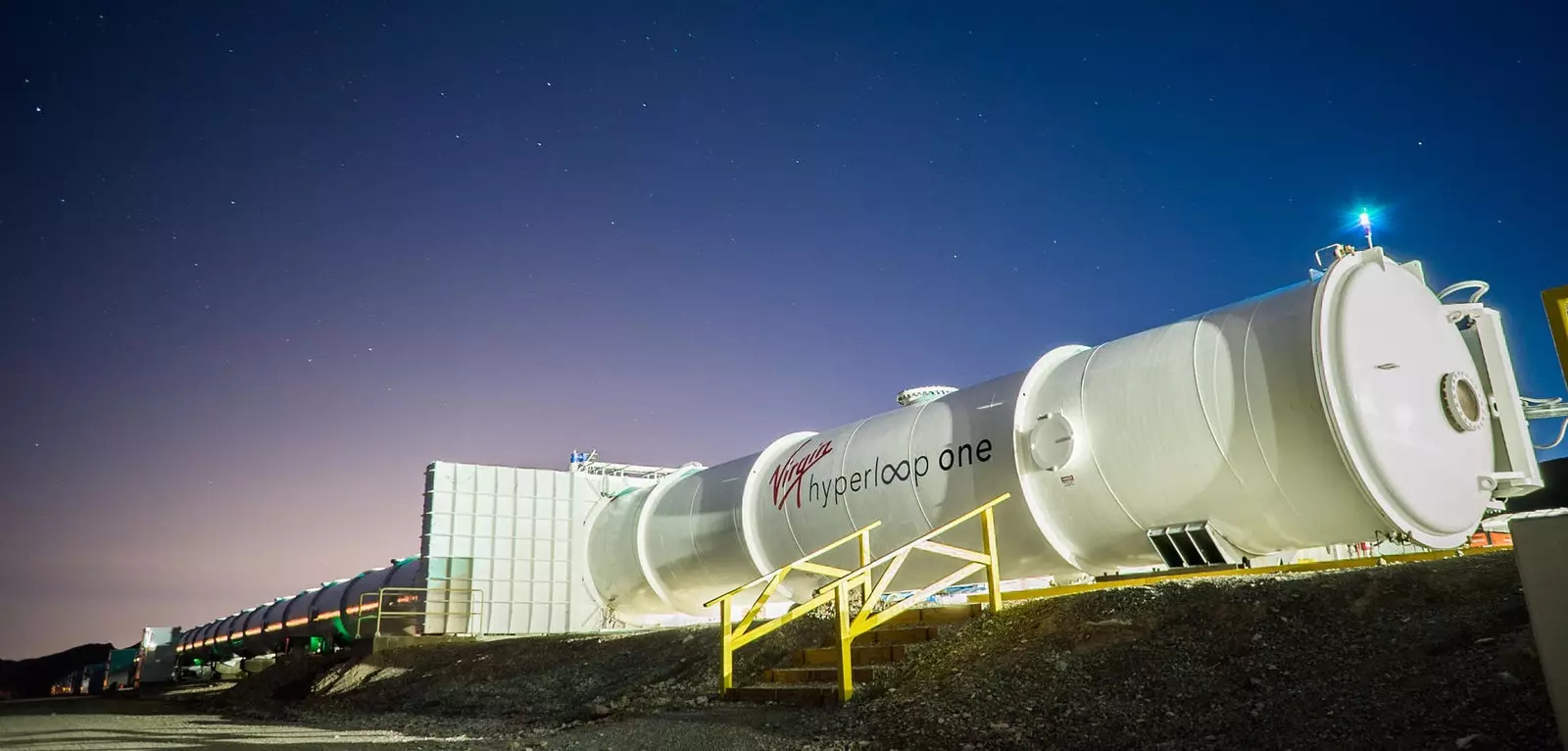
The Hyperloop developed by Virgin could cover the first route of this means of transport in the world
160 kilometers today separate Mumbai and Pune, a route that requires driving for more than two and a half hours, or taking a train journey that takes, at best, three and a half hours, and at worst, five.
The first is on the coast; the second, inside. Both belong to the Indian state of Maharashtra. And they can go down in history for becoming the first two cities in history to be connected through the Hyperloop, the fastest land environment in the world.
“If the public procurement process concludes at the end of 2019, we can expect construction to start in the first quarter of 2020. Then we will have a year to carry out the construction. safety certification of the start-up of the service”, Sarah Lawson, head of marketing for Virgin Hyperloop One (VHO), explains to Traveler.es.
After all that, there will still be several steps to take until the section is complete: “The project will be completed in two phases: the first will culminate in the completion and certification of the 11.7-kilometre demonstration track, followed by the construction of the complete commercial route, of 117.5 kilometers, in phase 2. The time it will take to build this last phase is between four and five years, and it can only start once phase 1 has been successfully completed”, clarifies the expert.
We are talking, then, that in less than a decade we could see one of the most anticipated technologies of recent years become a reality. The Hyperloop, proposed by the inventor and tycoon Elon Musk in 2013, has been making headlines since then, and, despite the many hypotheses about it, it is not known when, or where, it will take place his first real route . Not even who will build it, because Musk wrote the patent open source, so any interested company can give birth to what is announced as "transport of the future".
“At the end of July 2019, the Government of Maharashtra, one of the earliest proponents of Hyperloop technology on the planet, deemed its construction a public infrastructure project, making it the first such project in the world. But we are also exploring other similar plans around the globe, including North America, Europe and the Middle East. Right now anyone can win. Lawson continues.
Of course, Virgin Hyperloop One is the company that has signed its start-up with the institutions of Maharashtra, so, if everything develops as expected, it is likely that the one in Mumbai and Pune will end up being the first route of its kind on the globe. “The VHO system can usher in a paradigm shift in transportation by providing an all-electric mass transit backbone, moving more passengers and at speeds faster than an airplane, with less energy than other modes of travel and zero direct emissions. ”.
In fact, at a crucial moment for the planet, which can't afford to raise his temperature one degree more , it seems that the VHO would be a response that is not only effective, but also sustainable. “We are building a 100% electric mass transportation system, which can reach flight speed with five to 10 times less energy than an airplane, and less energy than other slower or high-speed magnetic levitation solutions,” he details. Lawson.
“The Hyperloop can be powered by renewable energy directly from the grid, or thanks to the solar panels that cover its tube. The space-saving design with which it has been devised allows it to run underground or above ground or to minimize the environmental impact, and it only requires approximately two-thirds of the space destined for a high-speed railway”, concludes the professional.
